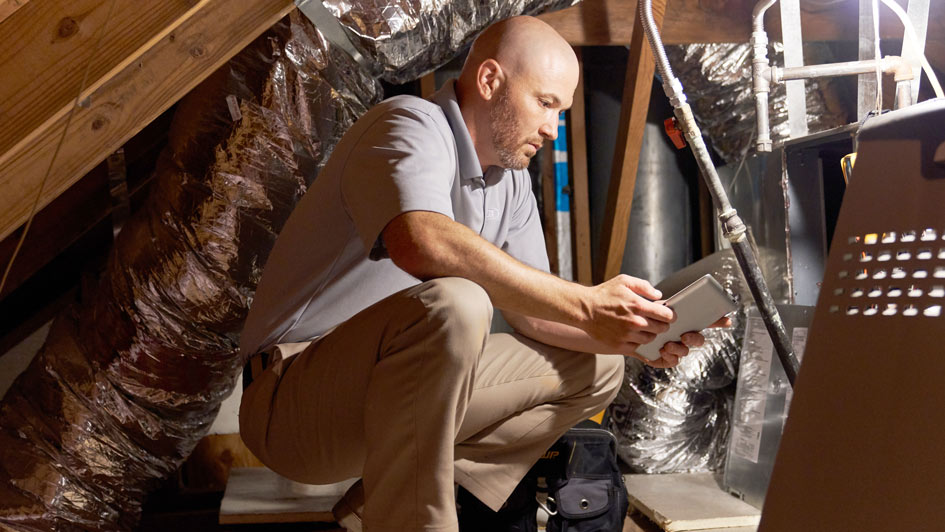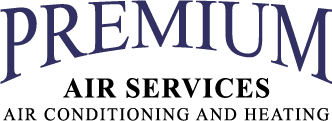
Where you aware that more than one-half of your home’s energy costs are for your heating and cooling? That’s why it’s so important to secure an energy-efficient HVAC system.
Furnace efficiency standards were last updated to an Annual Fuel Utilization Efficiency (AFUE) rating of 80% in 2015. This rating system illustrates how effective your furnace is at combusting natural gas into heat. An AFUE rating of 80% means your furnace wastes about 20% of the fuel it uses while generating heat.
In 2022, President Biden proposed new energy-efficiency standards for residential gas furnaces that would greatly lower emissions, save customers money and promote sustainability.
The updated standards are anticipated to:
- Save Americans $1.9 billion annually.
- Cut carbon emissions by 373 million metric tons and methane emissions by 5.1 million tons over three decades, the equivalent of what 61 million homes emit yearly.
Starting in 2029, the updated rule would demand all new gas furnaces to feature AFUE ratings of 95%. This means furnaces would convert nearly 100% of the gas into usable heat.
With these facts in mind, you may be asking yourself "what happens to my existing furnace"? As of now, next to nothing, as the proposed rule won't go into effect until 2029 at the earliest and does not affect furnaces that are already in use.
But if you are considering furnace replacement in soon, highly energy-efficient furnaces are now available. Learn how these furnaces can save you money on your utility bills.
Guide to Condensing Furnaces
How Condensing Furnaces Work
A condensing furnace is a kind of heating system that uses a secondary heat exchanger to trap wasted heat from the furnace's exhaust gases. This reduces the amount of energy wasted, enhances energy efficiency and lowers CO2 emissions. It also demands less natural gas to create the same volume of heat in comparison to other types of furnaces.
How Condensing Furnaces Differ from Non-Condensing Furnaces
The primary difference between a condensing furnace and a non-condensing furnace is that the former uses a secondary heat exchanger to gather any wasted heat from its exhaust gases, while the latter does not.
How Long Condensing Furnaces Last
The life span of a condensing furnace will depend on the brand, model and other factors. Usually, a condensing furnace is likely to last between 10-20 years with sufficient maintenance and regular service. If you put off scheduled maintenance, the equipment may have a significantly shorter life span.
Why Condensing Furnaces Are More Expensive
Generally, condensing furnaces are more require a large upfront cost than non-condensing furnaces. This is due to their increased efficiency and the additional features needed to capture any wasted heat from its exhaust gases. However, the extra energy savings can often cover the price of purchase. So long term, it may be worthwhile investing in a condensing furnace.
Guide to Variable-Speed Furnaces
Variable-Speed Furnaces: What They Are and How They Work
A variable-speed furnace can fine-tune its fan speed to better meet the heating preferences of your home. It starts at a slower speed until it detects a drop in temperature and then speeds up to generate more heat. This [precise fan is much more efficient than standard, single-speed furnaces, as it only uses the minimum amount of energy needed to heat your home, saving you money in the long run.
Most variable-speed furnaces are condensing furnaces, although a handful are available in non-condensing models with lower AFUE ratings. If a manufacturer wants a furnace to be classified as a condensing furnace, it must offer an AFUE rating of 90% or higher.
Do Variable-Speed Furnaces Run Constantly?
A variable-speed furnace doesn’t run all the time. Rather, it runs at different speeds according to the temperature in your Tomball home as well as the amount of energy it requires to sustain that temperature.
When sufficient energy is required to maintain your preferred temperature level, the furnace will increase to a higher speed in order to keep up with demand. Doing this will ensure more efficient heating in your home while also providing quieter operation.
Guide to Two-Stage Furnaces
Two-Stage Furnaces: What They Are and How They Work
A heating system with two settings of operating - high and low - is called a two-stage furnace. When set to the low stage, the furnace runs at a reduced capacity in order to maintain the chosen temperature at your home more efficiently. During the high stage, the furnace will instead function at peak capacity to satisfy demands for more heat. With a two-stage furnace, you can maintain improved energy efficiency and comfortable temperatures all across your home.
While two-stage furnaces are highly efficient, not all all types are condensing furnaces.
Does a Two-Stage Furnace Run All the Time?
A two-stage furnace should not run constantly. In the low stage of operation, the furnace performs at reduced capacity in order to retain a desired temperature more efficiently within your home. When a greater demand for energy is needed to maintain the set temperature, the heating system switches to its high stage and operates at full capacity. As such, two-stage furnaces are able to help reduce energy costs without operating around the clock.
Differences Between Two-Stage and Variable-Speed Furnaces
Two-stage furnaces have two stages of functionality, low and high. During the low stage, the furnace performs at reduced capacity as a way to maintain a desired temperature within your home. When more warmth or cooling is necessary, the furnace will change over to its high stage and operate at maximum capacity.
Variable-speed furnaces, meanwhile, can work at multiple speeds in order to maintain a more precise temperature at home. As such, variable-speed furnaces offer greater savings on your utility bills .
Differences Between One- and Two-Stage Furnaces
One-stage furnaces have a single stage motor and operate either at full capacity or not at all. This translates to higher energy bills because the furnace runs constantly in order to maintain a desired temperature at home.
Conversely, two-stage furnaces have two stages of operation, low and high. During the low stage, the furnace runs at lower capacity in order to maintain the desired temperature more efficiently. When more warmth or cooling is necessary, the furnace will shift to its high stage and operate at full capacity.
Arrange Your Furnace Install Appointment with Premium Air Services LLC Today
It takes experience and dedication to stay up to date about furnace technology advancements. That’s why Premium Air Services LLC professionals are here to help with a no-obligation, no-pressure quote for furnace installation. We’ll assess your home, your heating needs and your budget before helping you find the right solution. Get in touch with us at 713-364-1078 to get started today!
